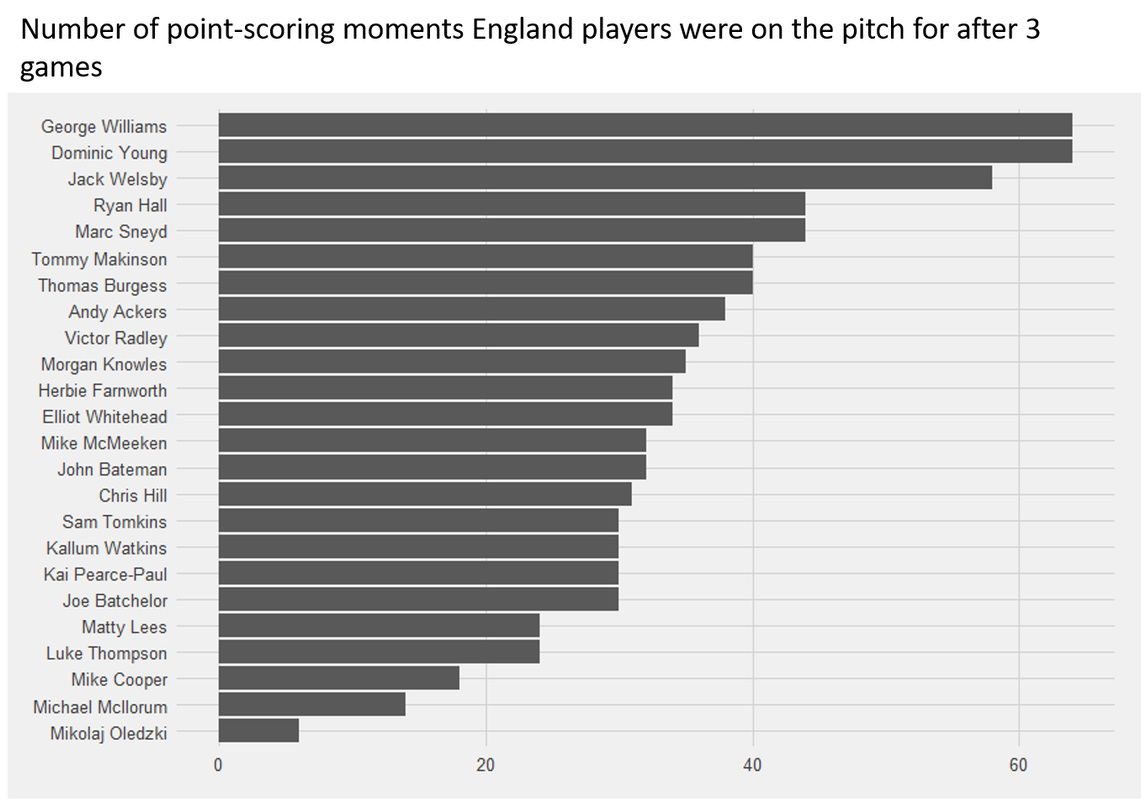
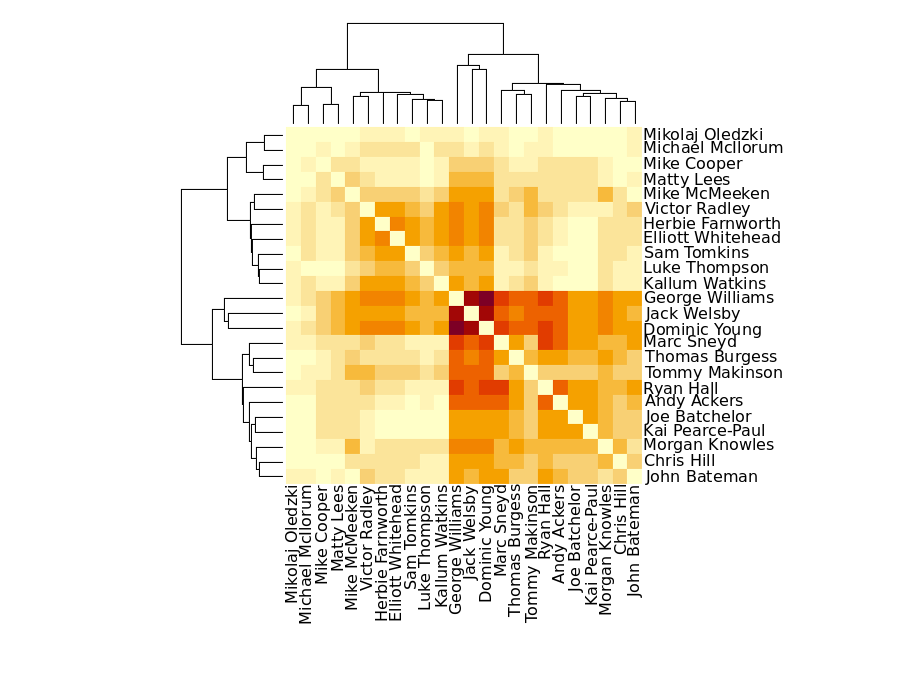
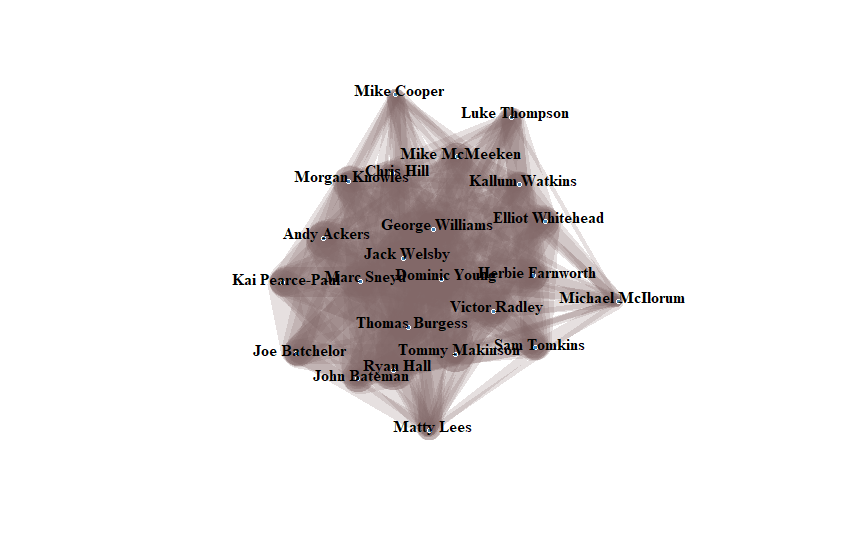
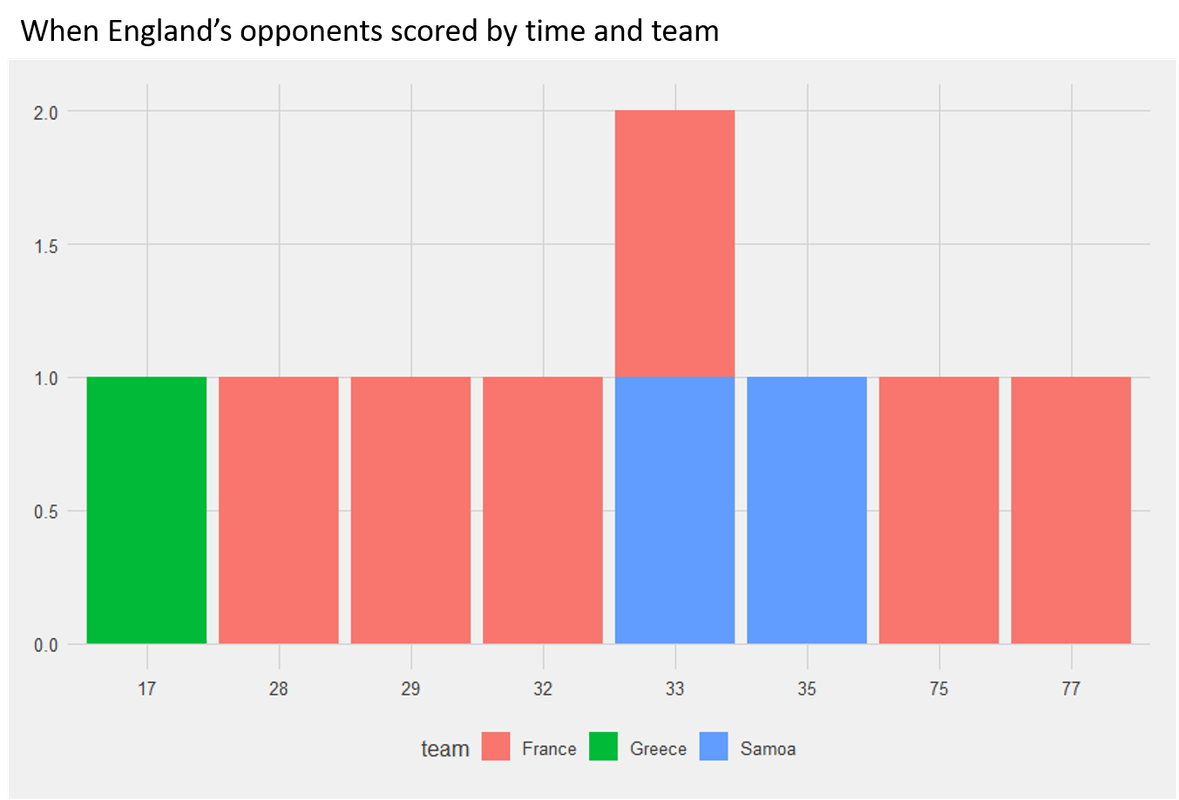
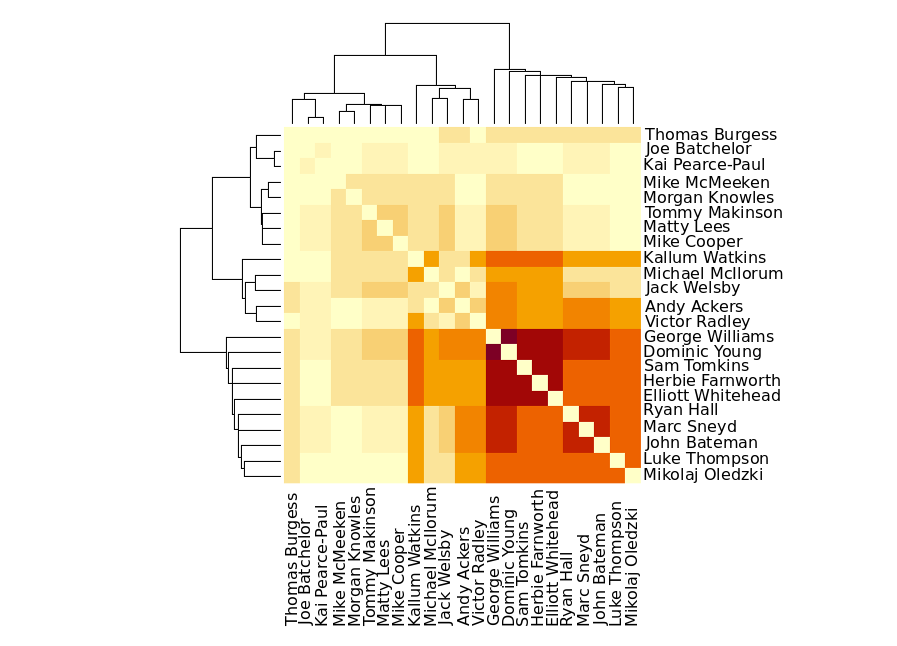





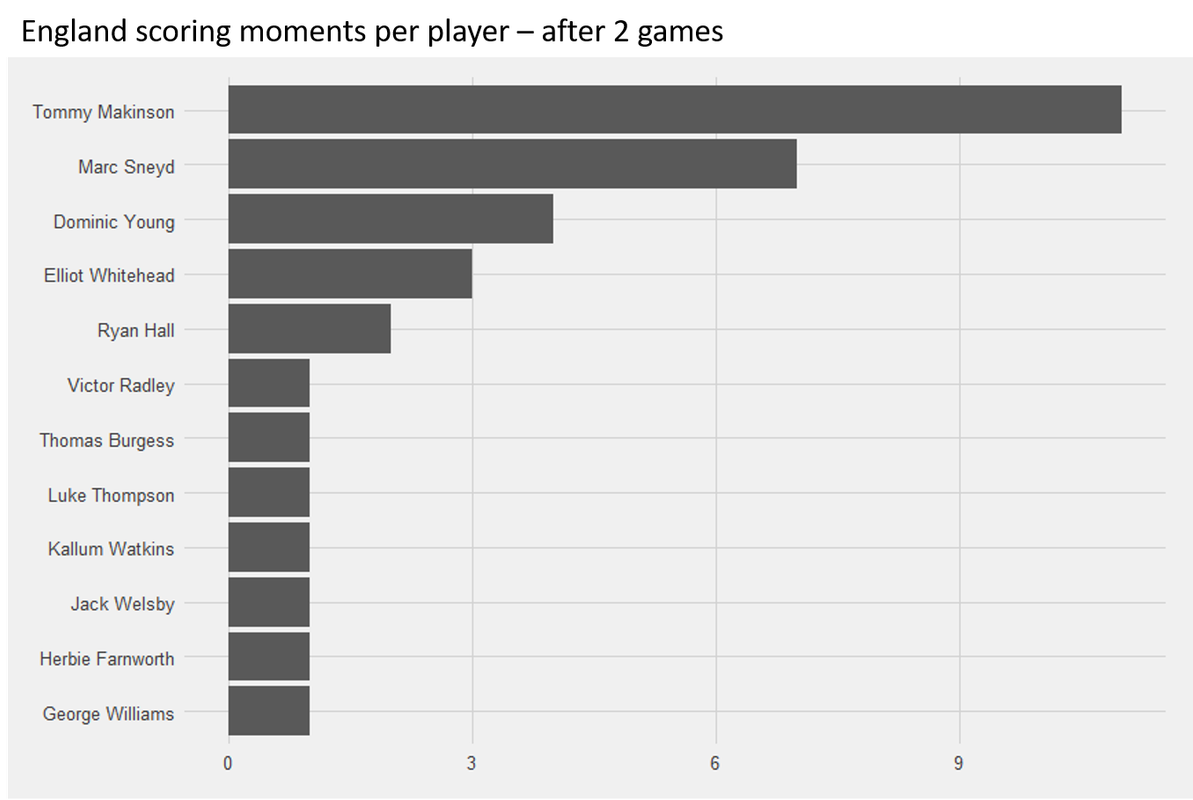 Tommy Makinson still tops the scoring-moments chart, even though he didn't play the second game. As a rugby league fan, it feels very odd saying an England game vs France was harder, with fewer scoring opportunities, than a game against Samoa.
Tommy Makinson still tops the scoring-moments chart, even though he didn't play the second game. As a rugby league fan, it feels very odd saying an England game vs France was harder, with fewer scoring opportunities, than a game against Samoa. 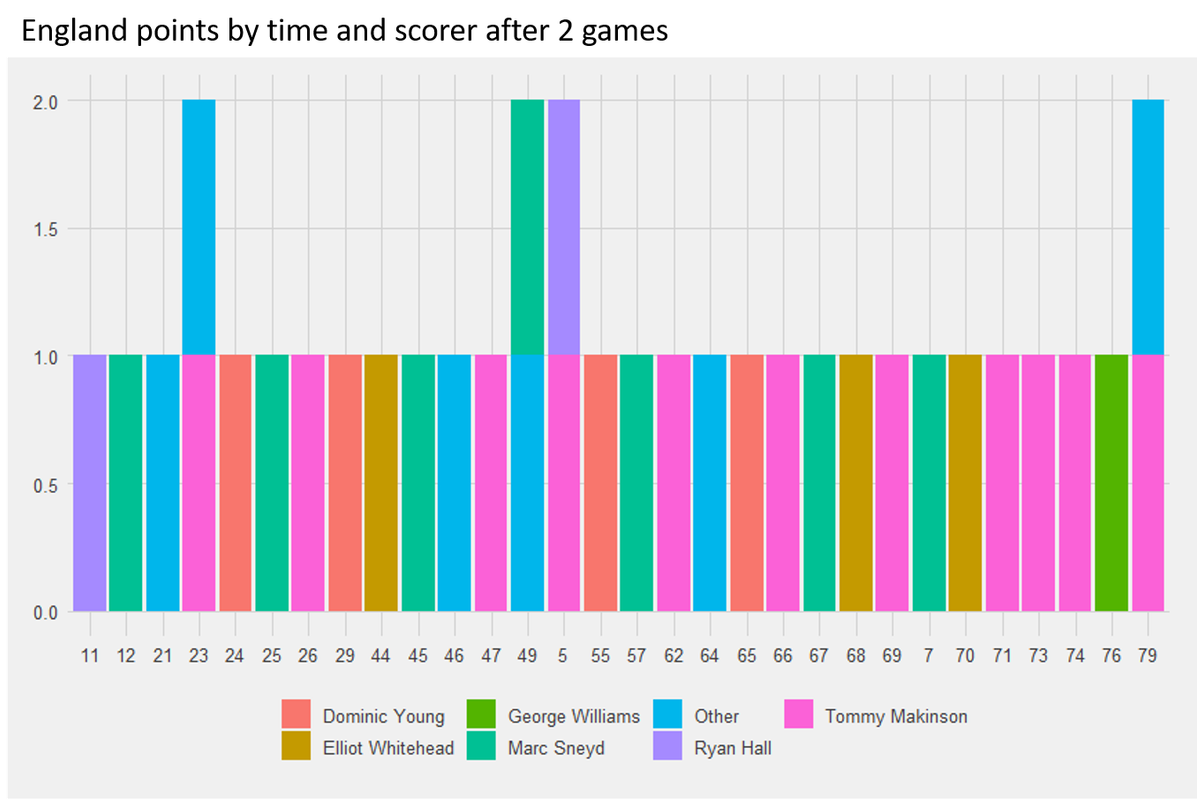 Yes, that is Ryan Hall in the top 6 points scores despite only playing one game. Because if England give him the ball he will score. If only Wayne Bennett had remembered that during the last World Cup.
Yes, that is Ryan Hall in the top 6 points scores despite only playing one game. Because if England give him the ball he will score. If only Wayne Bennett had remembered that during the last World Cup.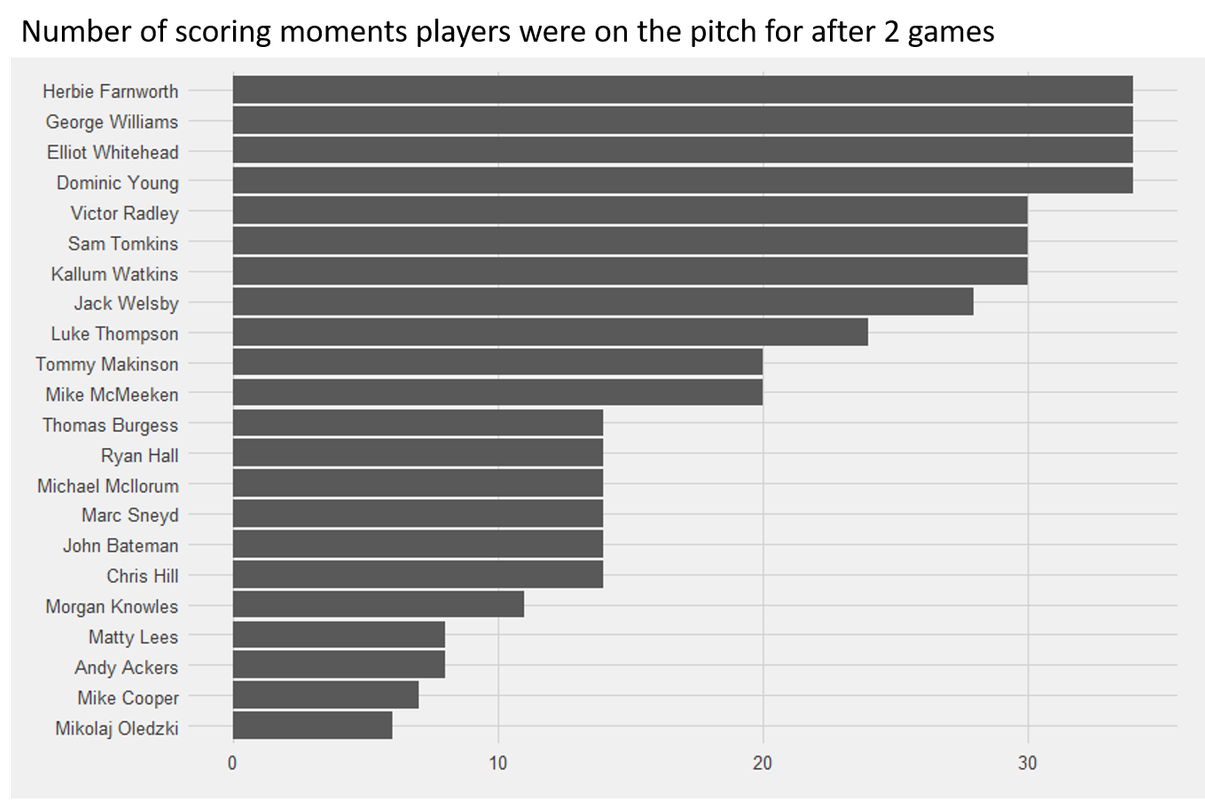 Four players have been on the pitch for all of England's points - Herbie Farnworth, George Williams, Elliott Whitehead and Dominic Young.
Four players have been on the pitch for all of England's points - Herbie Farnworth, George Williams, Elliott Whitehead and Dominic Young. 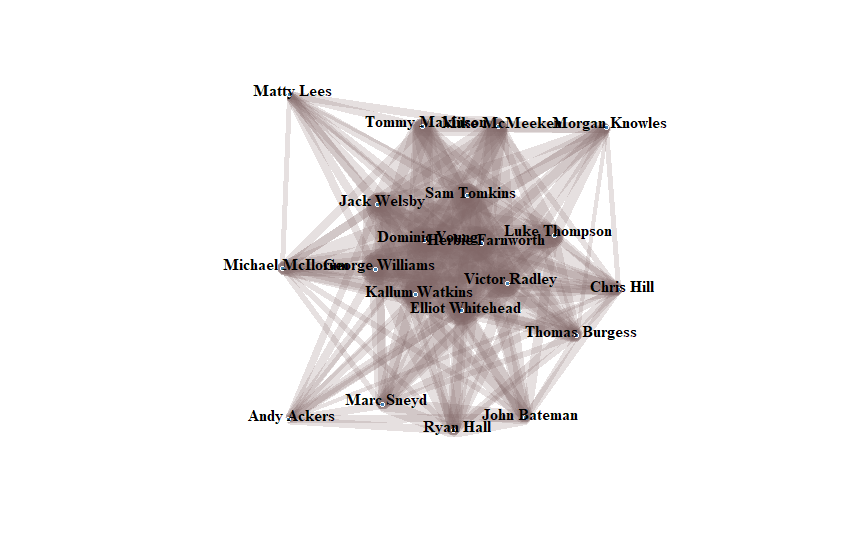
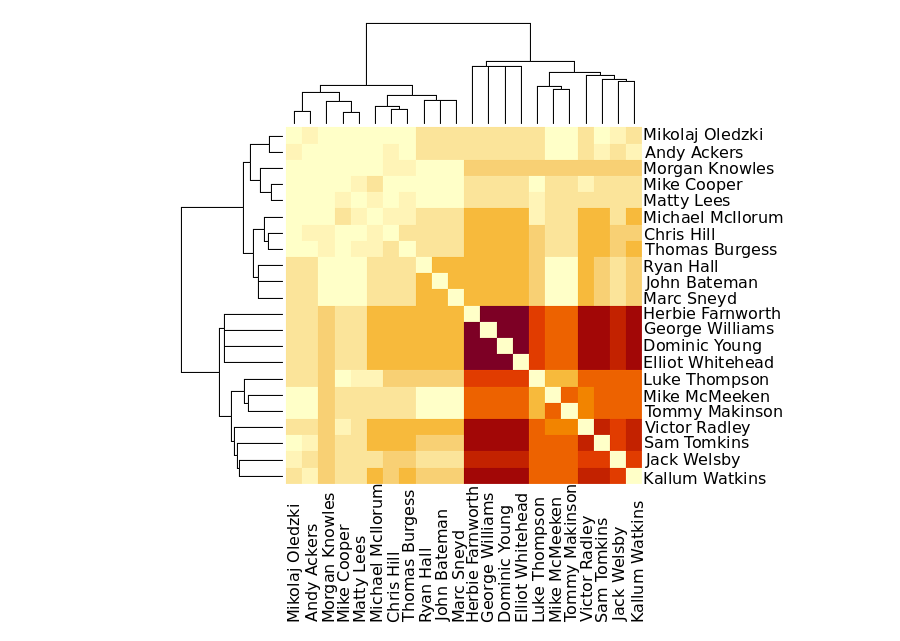 I've also now got some more info on when the opposition have scored. It's not as well formed as the scoring information so I'm only going to share one picture at the moment.
I've also now got some more info on when the opposition have scored. It's not as well formed as the scoring information so I'm only going to share one picture at the moment.
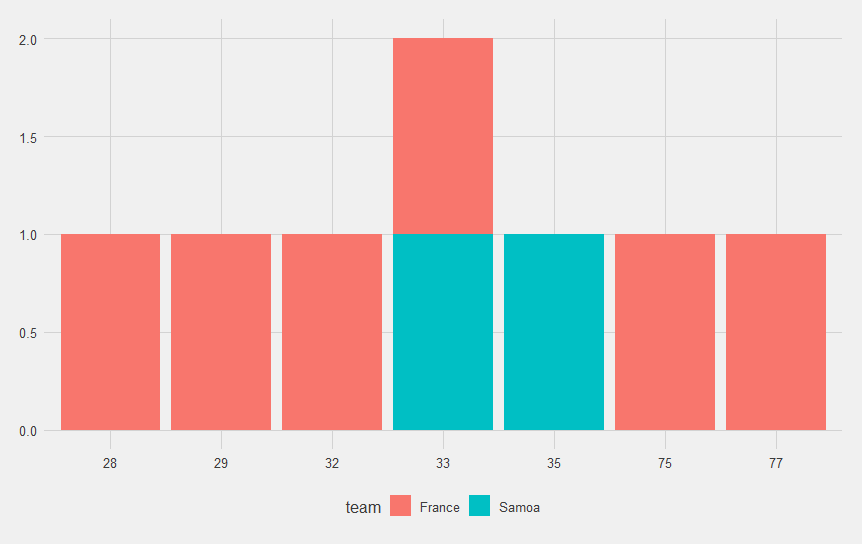 The main thing I take away from this is that England concede in the last 10 minutes of the first half.
The main thing I take away from this is that England concede in the last 10 minutes of the first half. 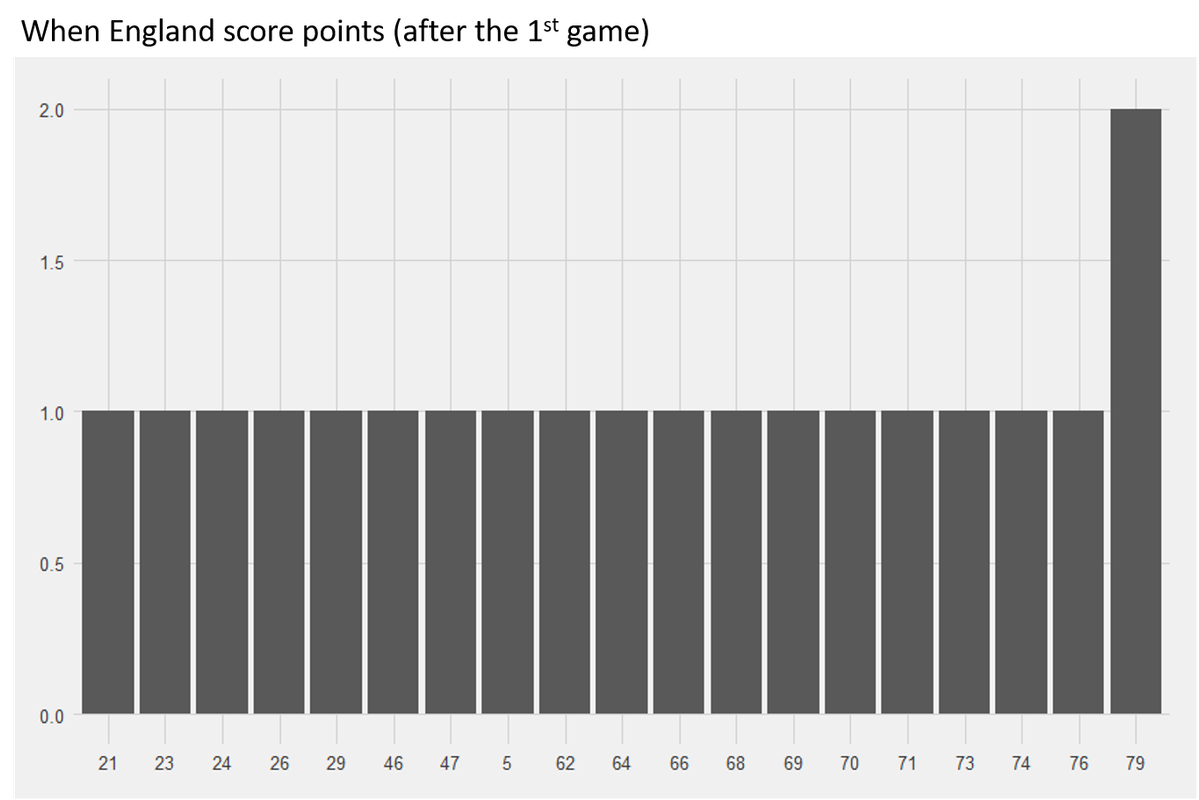

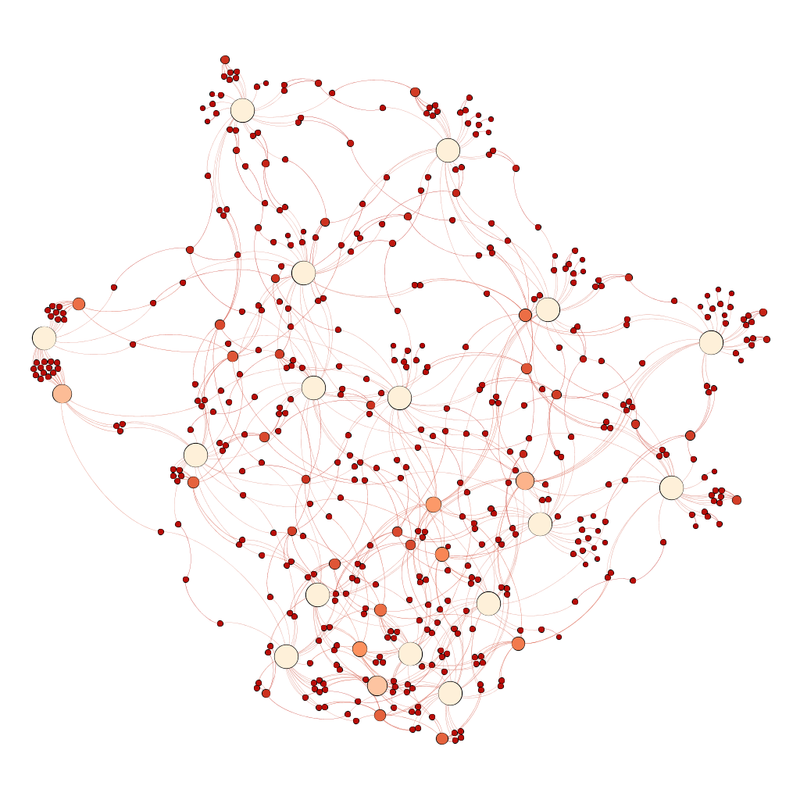
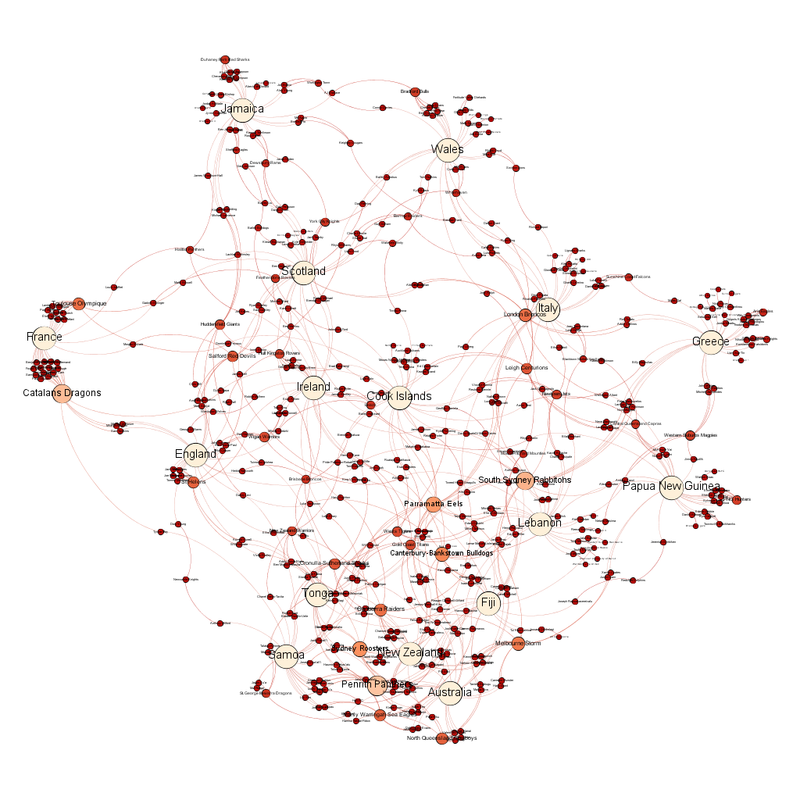
There will be no review of the Japanese Grand Prix because it has become obvious that the people running the Japanese Grand Prix do not care about previous Japanese Grand Prix so I don't see why I should.
What could have happened to Pierre Gasly is unforgiveable.
Motorsports will never be completely safe, but that just makes it more important that people who run races reduce risk where possible.
Having a tractor-type truck on track while drivers are racing in poor visibility in rainy conditions that lead to poor ability to control the car is a known danger - https://www.bbc.co.uk/sport/formula1/63190448
Jules Bianchi sustained the injuries that killed him at Suzuka in precisely those circumstances.
After the investigation, once that combination of factors was identified, everyone involved with the Japanese Grand Prix and Suzuka circuit said "never again".
I don't think doing the same thing 8 years later counts as never again.
Despite that, I was underwhelmed by the race. Marc Priestly, on BBC commentary for the weekend, said something that I think explains it. He said that he normally doesn't like the Singapore Grand Prix because nothing happens and he wasn't sure if this year's race was interesting or whether it was just because a lot of nothing happened.Ferrari just managed an unsafe release with their own car #SingaporeGP pic.twitter.com/9WBxBmeFMO
— WTF1 (@wtf1official) October 1, 2022